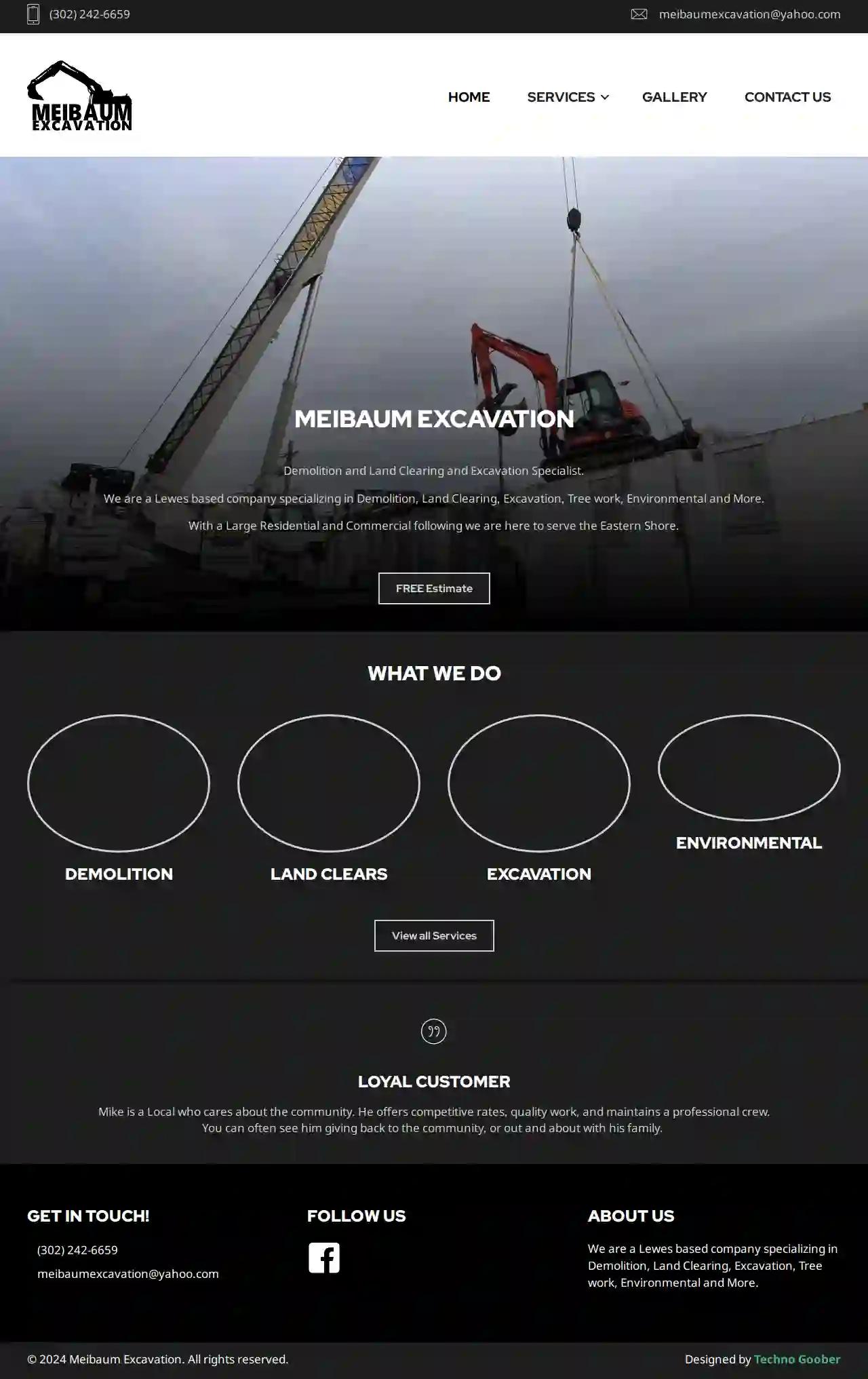Excavation Contractors Paris
Top 10 Excavation Services in Paris
Get 3 FREE Excavation Contractors Near Me quotes for your project today! Compare profiles, reviews, accreditations, portfolio, etc... and choose the best service.

Quiver League
531 reviews381 South 5th Street, Brooklyn, NY, 11211, USAbout Quiver League Quiver League is at the forefront of revolutionizing the construction and land surveying industry. With a commitment to excellence and innovation, we specialize in monitoring the stability of adjacent structures during Demolition, Support of Excavation ( SOE), and foundation work, along with delivering comprehensive Land Surveying services. What makes Quiver Unique? Quiver League distinguishes itself within the New York City construction industry by leveraging innovative custom software systems. These cutting-edge tools empower both our field and office teams, facilitating the completion of projects at an unprecedented pace—far surpassing the capabilities of our competitors. Our distinctive software not only ensures efficiency but also prevents overwhelm, enabling us to seamlessly manage even the most demanding workloads. Moreover, it allows us to initiate new projects and field installations with remarkable agility, responding promptly to our client's needs, even on short notice.
- Services
- Why Us?
- Testimonials
- Gallery
Get Quote
Buraq Construction Inc
571 reviews1307 Foster Ave, Brooklyn, 11230, USAbout Us Buraq Construction Company was established to offer general construction business in New York City, and has been giving excellent service for more than 10 years. We are the specialists in luxury construction services of the highest standard and safety while keeping up the same standards and quality. Our experienced team is well-versed in navigating the complexities of city regulations and addressing violations efficiently and effectively.
- Services
- Why Us?
- Gallery
Get Quote
Christiana Excavating Co.
4.610 reviews18802 Swains Private Road, Lincoln, 19960, USAbout Us Christiana Excavating Co. was founded in 1989 by Mike Connor and later joined by his brother, Paul Connor, in 2001. Teamed with a great staff, the company grew exponentially into the successful business it is today. CEC is a leading site excavating and underground utilities contractor serving all three counties in Delaware. The Connor brothers’ handshake business men reputation stands true today and is evident in every project they carry across the finish line. The valuable lessons and knowledge gained over the years by Mike and Paul Connor, has been dutifully passed down to CEC’s key personnel, and is an integral part of partnering with their clients. Christiana Excavating is a preferred site development contractor performing large scale residential and commercial projects. With hard work, diligence, and customer satisfaction a priority, great working relationships with clients and colleagues in the industry have been established. Christiana Excavating’s impressive fleet consists of excavators and dozers of all scales, a crusher to provide approved recycled aggregate for GABC placements, curb machine and highly integrated GPS systems in equipment for efficiency. CEC believes in offering quality work done correctly and efficiently, while staying within budget and focusing on safety. Safety is of paramount importance to our employees and our colleagues on the job site.
- Services
- Why Us?
- Our Team
- Gallery
Get Quote
Snead's Outdoor Services LLC
4.713 reviewsLexington, NC, 27292, USWelcome to Snead’s Outdoor Services! With our background in landscaping and machinery, you can count on us to get the job done right! Our vision, our solutions, and our services are all here to help our clients. We offer an array of services with different options to execute each job. We take great pride in the work we do. Our vision is to provide our customers with the peace of mind that they are in good hands with our outdoor experts. Each new project we come across is different from the last. With the equipment and knowledge we possess of our industry, we are able to offer our customers a solution for every project, big or small. We always find a way to complete the job!
- Services
- Why Us?
- Testimonials
- Gallery
Get Quote
JR & SONS EXCAVATING
51 reviewsEden, USAbout JR & Sons Excavating JR & Sons Excavating is a family-owned business with over 30 years of experience in the fields of Excavating and Landscape Architecture. We are dedicated to providing our clients with the highest quality service and workmanship. Our team is equipped with the best equipment and knowledge to safely and effectively complete any project you desire. Owner and Operator, Joe Chimera, focuses great emphasis on every individual's needs so that their project will be executed to the highest standards. Joe and his team are committed to exceeding your expectations and delivering exceptional results. We take pride in our equipment and utilize top products in our industry to ensure your project is completed efficiently and to the highest standards.
- Services
- Why Us?
- Gallery
Get Quote
Apex Excavating & Construction Services, LLC
517 reviewsClay, USWelcome to Apex Excavating & Construction Services, LLC We are a team of experienced professionals committed to delivering top-quality services to our clients. Our company specializes in excavation, site preparation, and construction services in Greensboro & The Piedmont. We hold an unlimited general contractors license, so we can work on any project, no matter the size and scope. If you want to build ANYTHING, we can help. We may have started in site development, but our customers kept asking if we could build their driveway or help stand up a shed in their yard. So we added construction services to our offerings. We started small and as we grow, we strive to maintain our small company feel. By strategically partnering with skilled tradesmen in North Carolina, we maintain the flexibility of a small business, while being able to scale to meet the demands of big projects. Our mission is simple: To provide our customers with exceptional service, quality workmanship, and a smooth construction experience from start to finish. Whether you’re a homeowner, business owner, or contractor, we are committed to delivering outstanding value and exceeding your expectations in everything we do. We’re Apex Excavating & Construction Services, a family owned and locally operated construction and site development company in Greensboro, NC. We’ve been tearing up the ground and building things in the Piedmont for years, and we’re proud to be a part of the community. We’re committed to providing our customers with the highest quality services at a fair price. We’re also committed to safety, and we take every precaution to ensure that our employees and customers are safe on the job site.
- Services
- Why Us?
- Gallery
Get Quote
Shackelford Construction and Hauling, LLC
4.76 reviews350 South Industrial Parkway, Yazoo City, USAbout Us Shackelford Construction and Hauling, LLC is a Mississippi-based construction company, with additional offices in Houston, TX, and yards located in New Mexico, Texas, South Carolina, and Georgia. We specialize in a range of services including land clearing, demolition, excavation, grading, soil stabilization, storm drainage, stone placement, concrete, building, and site maintenance for the railroad, oilfield, energy, industrial, and large commercial industries. Our top priorities are safety and customer satisfaction. Shackelford is licensed to operate in 30 states across the United States on individual projects up to 55 million dollars. Our client list ranges from all class 1 railroads and privately-owned short lines to oil and gas, chemical, industrial, and energy. Our Mission Finish every job ahead of schedule and without incident, allowing our customers the earliest possible financial return on their investment. Team Jay Shackelford Owner 38 years of experience Hunter Shackelford Operations Manager 26 years of experience Alfonzo Hernandez Safety Manager 26 years of experience Reeves Shackelford Manager of Estimating & Project Management 27 years of experience Clint Shackelford Business Development 14 years of experience Reeves Shackelford Estimating & Project Management
- Services
- Why Us?
- Our Team
- Gallery
Get Quote
EAGL Construction Group LLC
52 reviewsBrooklyn, USEAGL Construction Group is a Brooklyn-based Design/Build Construction and Development company. We specialize in a wide range of services, from custom kitchen design and installation to bathroom renovations, hardwood flooring, and more. We also offer general contracting, development, excavation, and extensions for both residential and commercial projects. Our team of experienced professionals is dedicated to providing our clients with the highest quality workmanship and customer service. We are fully licensed and insured, and we are committed to exceeding your expectations. Whether you are looking to renovate your bathroom, build a new kitchen, or simply need help with a small repair, EAGL Construction Group is here to help. Contact us today for a free consultation.
- Services
- Why Us?
- Gallery
Get Quote
Meibaum Excavation
534 reviewsNew York, USMeibaum Excavation: Your Trusted Partner for Demolition, Land Clearing, and Excavation Meibaum Excavation is a Lewes-based company dedicated to providing top-notch demolition, land clearing, excavation, tree work, environmental services, and more. We have a strong reputation for serving both residential and commercial clients across the Eastern Shore. Our team is committed to delivering high-quality work, competitive rates, and a professional approach. We are proud to be a part of the community and strive to give back whenever possible. Whether you need to demolish a multi-story home, clear land for a new development, or excavate for a basement, Meibaum Excavation has the expertise and experience to handle your project efficiently and effectively. We are committed to safety and environmental responsibility, ensuring that all our work is completed to the highest standards. Contact us today for a free estimate and let us help you bring your vision to life.
- Services
- Why Us?
- Testimonials
- Gallery
Get Quote
Site Right Excavation, LLC
123 Main Street, Anytown, 12345, USSite Right Excavation: Your Trusted Partner for Excavation Services Site Right Excavation is a family-owned and operated business with over 20 years of experience in the excavation industry. We are committed to providing our clients with high-quality, reliable, and affordable excavation services. Our team of experienced professionals is dedicated to exceeding your expectations and delivering exceptional results. We understand that every project is unique, and we take the time to listen to your needs and develop a customized plan that meets your specific requirements. Whether you need site preparation, foundation excavation, utility installation, or any other excavation service, we have the expertise and equipment to get the job done right. At Site Right Excavation, we are committed to safety and environmental responsibility. We use the latest technology and equipment to ensure that our projects are completed safely and efficiently. We also strive to minimize our environmental impact by using sustainable practices and recycling materials whenever possible. Contact us today to schedule a free consultation and learn more about how we can help you with your next excavation project.
- Services
- Why Us?
- Testimonials
Get Quote
Over 22,076+ Excavation Businesses on our directory
Our excavation companies operate in Paris & surrounding areas!
ExcavationHQ has curated and vetted the Best Excavation Pros arround Paris. Find the most reliable business today.
Frequently Asked Questions About Excavation Contractors
- Experience: Choose contractors with a proven track record and years of experience in excavation projects similar to yours.
- Licensing and Insurance: Verify that they are properly licensed to operate in your area and carry adequate insurance to protect you from liability in case of accidents or damage.
- Equipment and Resources: Ensure they have the necessary equipment and resources to handle your project efficiently and safely.
- Positive Reviews and References: Check online reviews and testimonials from previous customers. Request references and contact them to inquire about their experience with the contractor.
- Professionalism: Opt for a company that communicates clearly, provides detailed and transparent estimates, and has a responsive and courteous team.
- Determine the Area: Measure the length and width of the area you want to fill. Multiply them to get the area in square feet (or meters).
- Determine the Depth: Measure the difference between the existing grade and the desired grade (how much you need to raise the ground). This is the depth of fill required.
- Calculate Volume: Multiply the area (step 1) by the depth (step 2) to get the volume in cubic feet (or meters).
- Account for Compaction: Fill dirt compacts when it settles, so add 10% to 25% to the calculated volume to account for compaction. The exact percentage depends on the type of fill material.
- New Construction: Laying foundations, basements, or underground utilities for new buildings.
- Home Additions: Creating space for new rooms, basements, or extensions.
- Landscaping: Leveling ground, creating slopes, installing retaining walls, or digging for ponds or pools.
- Drainage Improvement: Installing French drains, drainage ditches, or swales to manage water runoff.
- Utility Installation or Repair: Laying new water, sewer, gas, or electrical lines, or repairing existing ones.
- Demolition: Clearing debris and preparing the site after demolishing a structure.
- Sloped Property: Your property has a significant slope, making it prone to soil erosion or landslides.
- Creating Usable Space: You want to level off a sloped area to create a flat surface for patios, gardens, or other outdoor spaces.
- Preventing Damage: Erosion is threatening existing structures, driveways, or walkways.
- Landscaping Features: You're incorporating tiered gardens, raised beds, or other landscaping elements requiring soil retention.
How do I find a good excavation contractor?
How do I calculate how much dirt I need for fill?
How do I know if I need excavation for my project?
How do I know if I need a retaining wall?
How do I find a good excavation contractor?
- Experience: Choose contractors with a proven track record and years of experience in excavation projects similar to yours.
- Licensing and Insurance: Verify that they are properly licensed to operate in your area and carry adequate insurance to protect you from liability in case of accidents or damage.
- Equipment and Resources: Ensure they have the necessary equipment and resources to handle your project efficiently and safely.
- Positive Reviews and References: Check online reviews and testimonials from previous customers. Request references and contact them to inquire about their experience with the contractor.
- Professionalism: Opt for a company that communicates clearly, provides detailed and transparent estimates, and has a responsive and courteous team.
How do I calculate how much dirt I need for fill?
- Determine the Area: Measure the length and width of the area you want to fill. Multiply them to get the area in square feet (or meters).
- Determine the Depth: Measure the difference between the existing grade and the desired grade (how much you need to raise the ground). This is the depth of fill required.
- Calculate Volume: Multiply the area (step 1) by the depth (step 2) to get the volume in cubic feet (or meters).
- Account for Compaction: Fill dirt compacts when it settles, so add 10% to 25% to the calculated volume to account for compaction. The exact percentage depends on the type of fill material.
How do I know if I need excavation for my project?
- New Construction: Laying foundations, basements, or underground utilities for new buildings.
- Home Additions: Creating space for new rooms, basements, or extensions.
- Landscaping: Leveling ground, creating slopes, installing retaining walls, or digging for ponds or pools.
- Drainage Improvement: Installing French drains, drainage ditches, or swales to manage water runoff.
- Utility Installation or Repair: Laying new water, sewer, gas, or electrical lines, or repairing existing ones.
- Demolition: Clearing debris and preparing the site after demolishing a structure.
How do I know if I need a retaining wall?
- Sloped Property: Your property has a significant slope, making it prone to soil erosion or landslides.
- Creating Usable Space: You want to level off a sloped area to create a flat surface for patios, gardens, or other outdoor spaces.
- Preventing Damage: Erosion is threatening existing structures, driveways, or walkways.
- Landscaping Features: You're incorporating tiered gardens, raised beds, or other landscaping elements requiring soil retention.